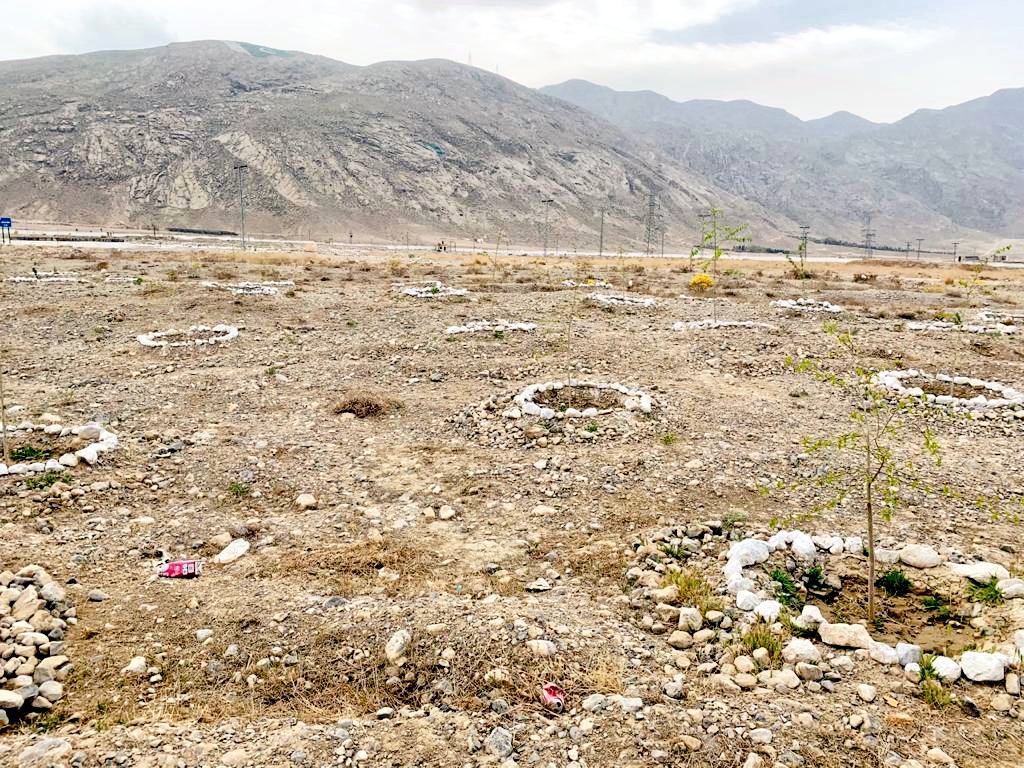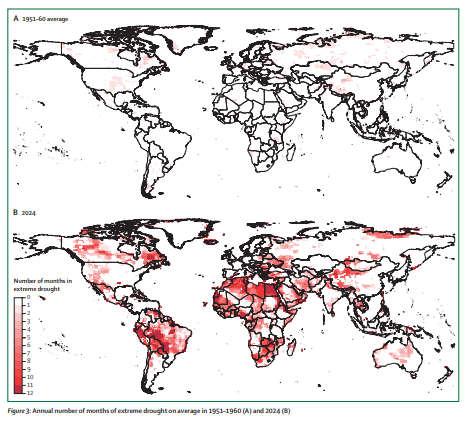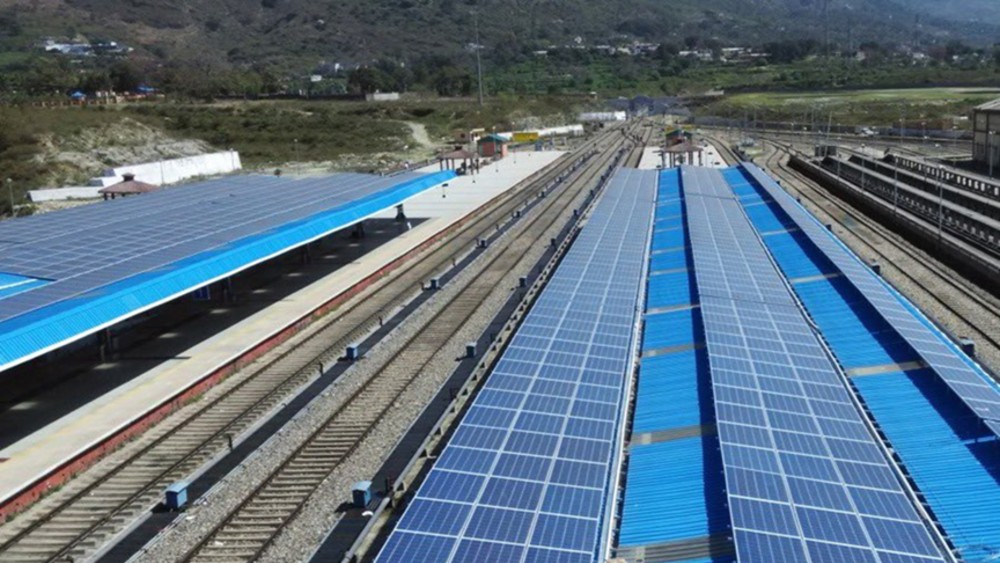Climate change claims millions of lives every year, Lancet report finds


Screengrab: X via @ClimateChangePK
ISLAMABAD: The World Health Organization (WHO) and global partners released the 2025 Lancet Countdown report, urging that protecting human health must drive climate action amid rising heat deaths and fossil fuel dependence worldwide.
The report warns that continued reliance on fossil fuels and inadequate adaptation to rising temperatures are taking a devastating toll on lives, economies, and health systems worldwide.
“This report, produced with WHO as a strategic partner, makes clear that climate inaction is killing people now in all countries. However, climate action is also the greatest health opportunity of our time. Cleaner air, healthier diets, and resilient health systems can save millions of lives now and protect current and future generations.”
The findings show 12 of 20 key indicators tracking health threats have reached record levels. Climate inaction is costing lives, straining health systems, and undermining economies.
“The climate crisis is a health crisis. Every fraction of a degree of warming costs lives and livelihoods,” said Dr Jeremy Farrar, Assistant Director-General for Health Promotion and Disease Prevention and Care at the World Health Organization.
The report identifies Asia among the regions with the most significant rise in heatwave exposure due to climate change, alongside Africa and Small Island Developing States.
It adds that the climate suitability for dengue transmission — spread by Aedes mosquitoes — has risen by 48.5% since the 1950s, contributing to millions of new cases globally.
Heat exposure threat
The report highlights a 23% rise in heat-related deaths since the 1990s, with an average of 546,000 people dying annually due to heat exposure. Infants and older adults each experienced over 20 heatwave days per person in 2024, four times as many as two decades ago. Droughts and heatwaves have pushed an additional 124 million people into food insecurity.
Economic losses are also mounting. Heat exposure resulted in 640 billion potential labor hours lost in 2024, with productivity losses estimated at $1.09 trillion.
Governments spent $956 billion on fossil fuel subsidies in 2023 — more than triple the annual amount pledged to support climate-vulnerable countries. In 15 nations, fossil fuel subsidies exceeded entire national health budgets.
Despite these challenges, the report highlights progress. Between 2010 and 2022, reduced coal-derived air pollution prevented 160,000 premature deaths annually.
Global surge in drought
The Lancet Countdown warns that the “percentage of the global land area affected by at least 1 month of extreme drought reached a record-breaking 60·7% in 2024, 299% above the average” since the 1950s.
Researchers said the rise in global droughts reflects how higher temperatures and shifting rainfall patterns are disrupting water and food systems. “Droughts threaten food productivity and water security, and heighten the risk of infectious diseases,” the report noted.
It added that prolonged dry periods are also worsening air quality by increasing dust exposure and wildfire risks, while disrupting power generation and river transport in several regions.

Global energy
Renewable energy generation reached a record 12% of global electricity, creating 16 million jobs. Two-thirds of medical students received climate and health education in 2024.
“We already have the solutions at hand to avoid a climate catastrophe,” said Dr Marina Romanello, Executive Director of the Lancet Countdown at University College London. “Rapidly phasing out fossil fuels in favor of clean renewable energy and efficient energy use remains the most powerful lever to slow climate change and protect lives.”
‘Leading the way’
“While some governments have slowed their climate commitments, the report shows that cities, communities, and the health sector are leading the way,” WHO official, Dr Jeremy Farrar said.
Nearly all reporting cities have completed or plan to complete climate risk assessments, while health-related greenhouse gas emissions fell 16% globally between 2021 and 2022.
The 2025 Lancet Countdown report said weather-related extreme events caused $304 billion in global economic losses in 2024, which is 0.27% of global GDP.
As preparations for COP30 in Belém, Brazil, advance, the WHO said the report provides key evidence for placing health at the center of climate action. The organization will expand on these findings through its forthcoming COP30 Special Report on Climate Change and Health, focusing on the policies and investments needed to protect global health and equity.
Latest News
Bangladesh to distribute 0.5M farmer cards in 180 days
2 HOURS AGO
.jpg)
Iran insists not seeking nuclear weapon ahead of US talks
2 HOURS AGO

US imposes 126% duty on Indian solar exports, raising trade concerns
3 HOURS AGO

Cuba kills four on US-registered speedboat trying to 'infiltrate'
6 HOURS AGO

Trump, Zelensky speak before Ukraine-US talks in Geneva
7 HOURS AGO
